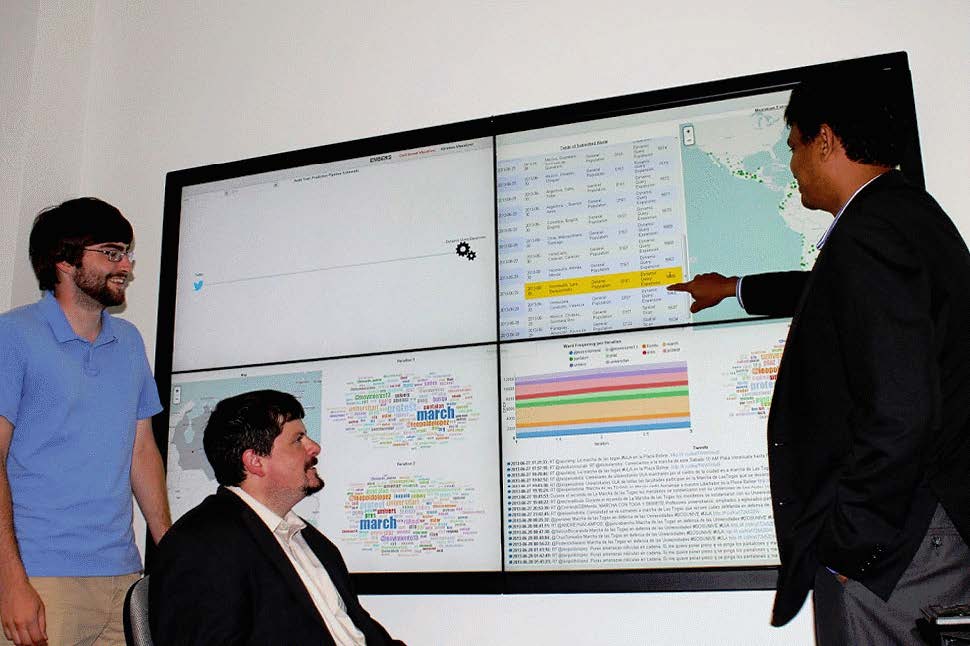Discovery Analytics Center expands Big Data initiatives to Arlington

The Discovery Analytics Center has received more than $15 million in grants and contract research since its inception in 2011, with sponsors spanning across government and industrial sectors.
Committed to solving knowledge discovery problems in areas of national interest such as intelligence analysis, sustainability and health informatics, Director Naren Ramakrishnan, the Thomas L. Phillips Professor of Engineering, and his team of 10 doctoral students have recently made the move to the Virginia Tech Research Center -- Arlington to capitalize on its proximity to the forces that shape the future of our nation.
"The relocation brings the center closer to many significant collaborations in the intelligence analysis, national security, and health informatics domains, both industrial and academic," Ramakrishnan said.
The Discovery Analytics Center is supported by the Institute for Critical Technology and Applied Science at Virginia Tech, and has a home in the computer science department of the College of Engineering.
The center will continue to have a strong presence at the Blacksburg campus. Chris North, an associate professor of computer science, will serve as associate director for the Blacksburg site. Chang-Tien Lu continues as the associate director for the center.
“The expansion affords close proximity to the federal agencies we aim to serve. Our mission is to flourish into an internationally recognized research center by advancing the science of data analytics,” said Christopher Walker, who was recently promoted to program manager and will be joining the team in Arlington.
The Early Model Based Event Recognition using Surrogates project, known as EMBERS, has catalyzed the center’s recent expansion.
The effort is a three year, nearly $15 million research and development project sponsored by the Intelligence Advanced Research Projects Activity as part of the Open Source Indicators Program.
The Early Model Based Event Recognition using Surrogates project’s mission is to forecast significant societal events ranging from violent protests to the spread of contagious diseases by analyzing the billions of pieces of data in the ocean of public information such as tweets, website queries, restaurant cancellations, and even satellite imagery.
The system monitors public data sources 24 hours a day, seven days a week, to discover emerging trends and to better equip the intelligence community with an intuitive software tool capable of aggregating massive volume data feeds, generating societal level event forecasts, and providing fully automated warnings with visual audit trails.
The Early Model Based Event Recognition using Surrogates project is currently focused on countries in Latin America and has successfully forecast several key events such as Hantavirus outbreaks in Argentina, and recent mass protests in Brazil and Venezuela. It has the potential to forecast similar population-level events all over the world.
The Discovery Analytics Center comprises faculty and students from various disciplines, including computer science, electrical and computer engineering, statistics, and mathematics.




